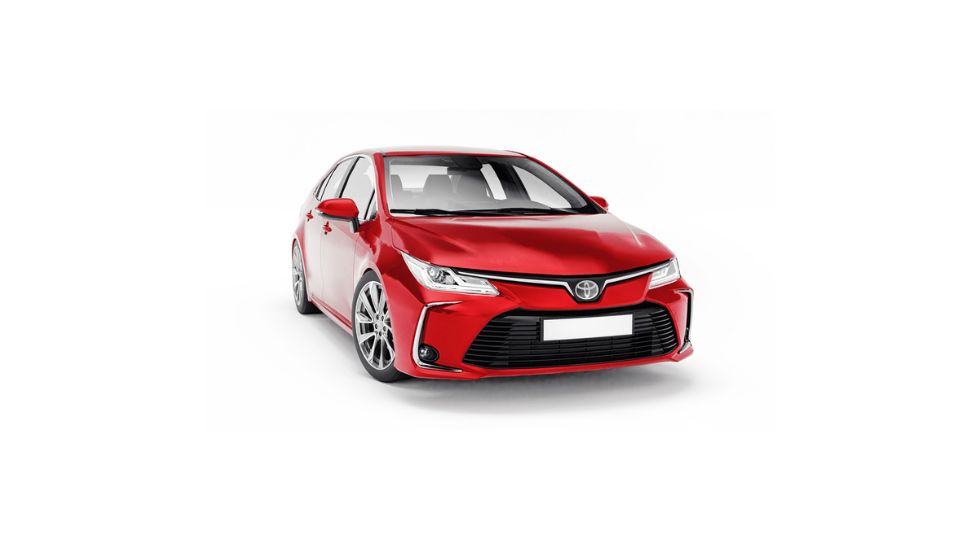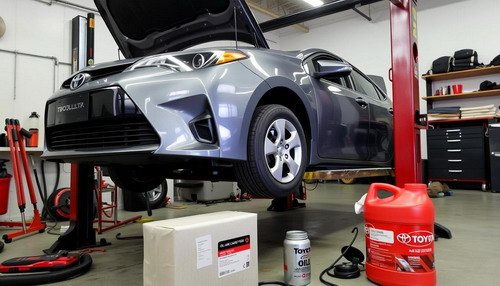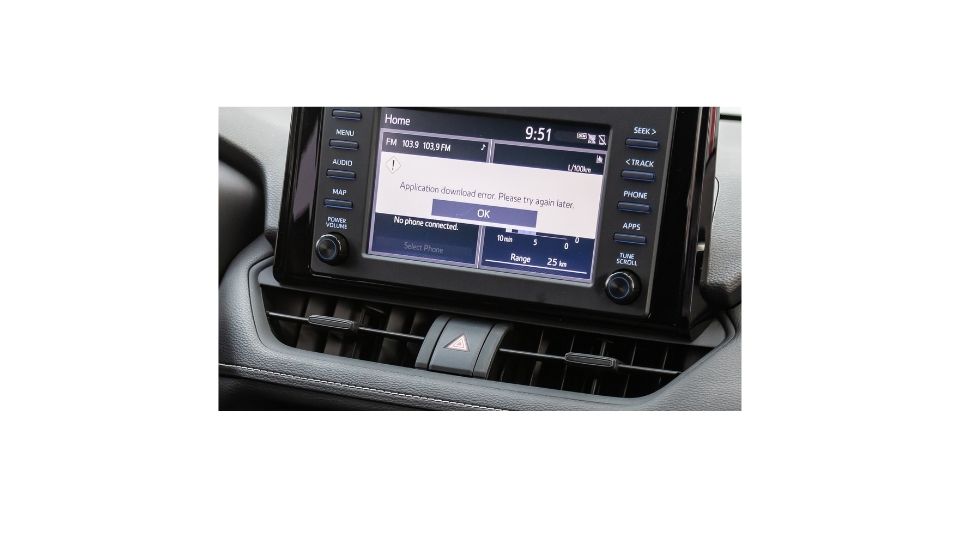Is Toyota Corolla a Compact Car? (Dimensions Explained)

The Toyota Corolla is one of the best-selling compact cars globally, known for its affordability, efficiency, and reliability. But is the Corolla truly a compact car?
By examining its dimensions, interior space, pricing, and overall design philosophy, we can determine whether the Corolla fits into the compact car segment.
This article will analyze the key characteristics of the Toyota Corolla to provide a definitive answer on its classification as a compact car.
Defining Compact Cars
Compact cars are generally defined as small cars that offer decent interior space and fuel economy at an affordable price point. They are larger than subcompact cars but smaller than midsize cars. Key characteristics of compact cars include:
- Length between 161 and 187 inches in length
- Wheelbase ranging from 100-110 inches
- Passenger and cargo volume less than midsize cars
- Fuel efficient 4-cylinder engines
- Maneuverable size for city driving and parking
- Affordable pricing compared to larger vehicles
Some examples of popular compact cars are the Honda Civic, Toyota Corolla, Nissan Sentra, Ford Focus, Chevrolet Cruze, Volkswagen Jetta, and Subaru Impreza. Compact cars offer a balance of practicality, efficiency, and value for car buyers looking for a smaller vehicle.
Toyota Corolla Overview
The Toyota Corolla is one of the world’s best selling compact cars. It was first introduced in 1966 and is currently in its 12th generation. More than 46 million Corollas have been sold globally, making it the best selling nameplate in automotive history.
Here is an overview of the key features of the Toyota Corolla:
- Sub-compact and compact car classifications
- Front engine, front wheel drive
- 4-door sedan and 5-door hatchback models
- 1.8L and 2.0L 4-cylinder gas engines
- Continuously variable transmission (CVT) or 6-speed manual
- 132-169 horsepower depending on trim
- Up to 52 mpg highway fuel economy
- MSRP ranging from $21,000-$28,000
The Corolla is Toyota’s mass-market compact vehicle, offering affordable pricing without compromising on quality or reliability. It competes with other compact sedans like the Honda Civic, Hyundai Elantra, and Chevrolet Cruze.
Toyota Corolla Dimensions
One way to evaluate whether a car fits into the compact segment is to look at its key dimensions. Here are the exterior dimensions for the 2023 Toyota Corolla:
| Dimension | Measurement |
|---|---|
| Wheelbase | 106.3 inches |
| Length | 182.3 inches |
| Width | 70.1 inches |
| Height | 57 inches |
With a length of 182 inches and wheelbase around 106 inches, the Corolla fits well within the size definition of a compact car. The dimensions make it easy to maneuver through traffic and fit into tight parking spaces.
The Corolla hatchback is slightly smaller with a length of 169.9 inches and height of 57.1 inches. But it still falls into the compact category based on its exterior measurements.
Interior Space and Cargo Capacity
In addition to exterior size, interior cabin space and cargo capacity help determine vehicle classification. Here are the key interior dimensions for the 2023 Corolla sedan:
- Headroom – 38.3 inches (front), 37.1 inches (rear)
- Legroom – 42.0 inches (front), 34.8 inches (rear)
- Passenger volume – 88.6 cubic feet
- Trunk capacity – 13.1 cubic feet
The Corolla provides decent headroom and legroom for a compact sedan. The front seats accommodate adults comfortably while the rear seats are bit more cramped. The trunk offers average cargo space for the segment.
Overall, the interior space and cargo capacity aligns with what is typical among compact cars. The Corolla strikes a nice balance between maneuverability and practicality.
Fuel Efficiency
One of the key attractions of a compact car is good fuel economy. The Toyota Corolla delivers efficiency through its engine options and transmission tuning.
Here is a look at the EPA-rated fuel economy for different 2022 Corolla powertrains:
- 1.8L 4-cylinder with CVT – 31 mpg city / 40 mpg highway
- 2.0L 4-cylinder with CVT – 31 mpg city / 38 mpg highway
- 1.8L 4-cylinder hybrid – 53 mpg city / 52 mpg highway
The conventional Corolla engines achieve 30+ mpg in combined driving, which is very good for the segment. Meanwhile, the Corolla Hybrid tops 50 mpg combined thanks to its battery-assisted powertrain optimization.
This level of efficiency is made possible by compact car attributes like lightweight construction, aerodynamics, and precisely tuned gearing. It demonstrates how Corolla delivers on the fuel economy expectations of a compact sedan.
Driving Dynamics
In terms of driving dynamics, the Toyota Corolla exhibits typical compact car characteristics focused on comfort and efficiency over performance. Key elements of its driving dynamics include:
- Light steering optimized for low-speed maneuverability
- Smooth ride quality balancing comfort and control
- Responsive braking for safety in city driving
- 4-cylinder engines focused on low-end torque and efficiency
- CVT tuning maximizes fuel economy over acceleration
- Balanced suspension absorbs bumps without excessive body roll
While no compact sedan will provide the agility of a sports car, the Corolla offers competent driving dynamics. Handling is stable and predictable supported by a tight chassis and suspension. The ride errs on the side of comfort over performance.
This blend of easy maneuverability, refinement and fuel efficiency gives the Corolla driving dynamics typical of an economy compact. Focus is on daily livability rather than exhilaration.
Safety Tech
Compact cars have come a long way in terms of advanced safety technology. The Toyota Corolla packs an impressive array of active safety features into its compact package.
Standard safety tech across the Corolla lineup includes:
- Pre-Collision System with Pedestrian Detection
- Lane Departure Alert with Steering Assist
- Automatic High Beams
- Road Sign Assist
- Adaptive Cruise Control
- Automatic Emergency Braking
- Lane Tracing Assist
These features provide collision avoidance, driver assistance and active safety comparable to much more expensive vehicles. Toyota’s commitment to democratizing safety has made the Corolla a benchmark for compact segment safety.
Compact Car Competition
The compact sedan segment remains highly competitive with the Toyota Corolla facing rivals like:
- Honda Civic
- Hyundai Elantra
- Kia Forte
- Volkswagen Jetta
- Nissan Sentra
- Mazda 3
- Subaru Impreza
The Corolla competes by leveraging its reputation for quality, efficiency, value and safety. Toyota’s engineering rigor keeps the Corolla as a perennial top-seller versus other compact sedans.
Rivals like the Civic and Elantra offer similar roominess, features and driving dynamics. But the Corolla’s brand equity, proven reliability and strong resale value keep it highly attractive to compact buyers.
Is the Toyota Corolla a Compact Car? Conclusion
In summary, the evidence clearly shows the Toyota Corolla classified as a compact car based on:
- Exterior dimensions within the compact range
- Interior space comparable to other compacts
- Good fuel efficiency from four-cylinder engines
- Pricing suitable for a compact segment vehicle
- Driving dynamics focused on comfort and economy
- Safety tech bringing innovative features to the segment
For over 50 years, the Toyota Corolla has defined expectations for the compact car market. Its combination of affordability, quality, and reliability exemplify why compact cars remain popular with budget-conscious buyers. The Corolla will continue being a top compact choice by sticking to its successful formula balancing size, efficiency, safety and value.

When he’s not working his magic under the hood, Ethan Wilson is usually sharing his love for Toyota cars through his writing. Ethan’s got a special talent for breaking down complex car topics into easy-to-understand articles, making him a go-to source for Toyota enthusiasts everywhere.



